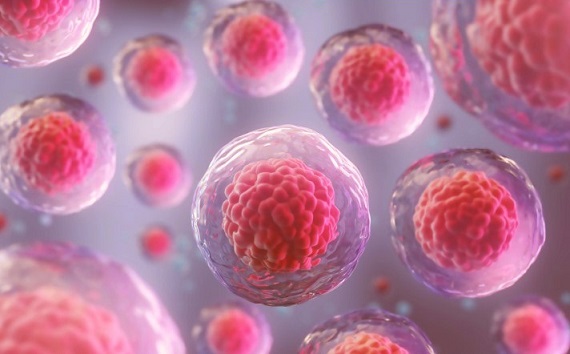Nikhil Prasad Fact checked by:Thailand Medical News Team Nov 25, 2025 2 months, 4 weeks, 1 day, 7 hours, 49 minutes ago
Medical News: Promising way to keep stem cells young and active
A new study by researchers from The Third Affiliated Hospital of Sun Yat-sen University, The First People’s Hospital of Kashi, and the Xinjiang Stem Cells Special Plateau Disease Engineering Technology Research Center reveals that certain forms of selenium can dramatically improve the growth and health of human umbilical cord mesenchymal stem cells. This
Medical News report highlights how the team compared four different selenium compounds and discovered that two of them stood out as powerful enhancers of stem cell vitality.
 Researchers discover that specific forms of selenium can keep stem cells youthful and more effective
Researchers discover that specific forms of selenium can keep stem cells youthful and more effective
during lab expansion
Why keeping stem cells youthful matters
Mesenchymal stem cells are widely used in regenerative medicine because they can reduce inflammation, repair tissues, and help treat serious conditions such as heart disease, liver failure, and autoimmune disorders. However, these cells age rapidly when grown in the lab, becoming slow, fragile, and less effective. This leads scientists worldwide to search for simple ways to keep stem cells strong during expansion for clinical use. The new findings suggest selenium may be a key ingredient to achieve this.
How the researchers tested selenium’s effects
The team evaluated four forms of selenium: inorganic sodium selenate, organic selenomethionine, organic ebselen, and chitosan-coated selenium nanoparticles (CS-SeNPs). They measured how these compounds influenced stem cell growth, structure, differentiation ability, and aging. They also looked closely at markers linked to cell aging, including p16, p21, p27, p53, inflammatory factors IL-6 and IL-8, and reactive oxygen species (ROS), which are known to damage cells.
Key findings that stand out
-Two selenium forms—CS-SeNPs and Na2SeO4—showed the strongest benefits at very low doses.
-Cells treated with these forms grew faster, produced more young and healthy cells, and did not undergo shape changes that would indicate stress. Importantly, these selenium types reduced ROS levels and lowered harmful aging signals. They switched off several major aging-related genes, including p16, p21, p27, and p53, while also suppressing inflammatory secretions such as IL-6 and IL-8.
-Even better, the selenium-treated stem cells retained their ability to turn into bone and fat cells, showing no loss of natural function.
What this means for future stem cell therapies
The study strongly suggests that adding small amounts of selenium—especially CS-SeNPs or Na2SeO4—can help laboratories grow large batches of stronger, more youthful stem cells. This has major potential for improving stem-cell-based treatments for many diseases. However, the researchers note that additional studies, including long-term and in-vivo testing, are needed to confirm safety and effectiveness before these methods can be used clinically.
&l
t;br />
Conclusions
These findings show that selenium can significantly boost stem cell growth and slow aging by reducing oxidative stress and suppressing key aging genes. The results highlight a simple but powerful way to produce higher-quality stem cells for medical use. More research will help determine how best to apply this approach in real clinical treatments, but the early evidence is highly promising for regenerative medicine.
The study findings were published in the peer reviewed journal: Biomedicines.
https://www.mdpi.com/2227-9059/13/12/2861
For the latest on stem cells, keep on logging to Thailand
Medical News.
Read Also:
https://www.thailandmedical.news/articles/stem-cell-therapies
